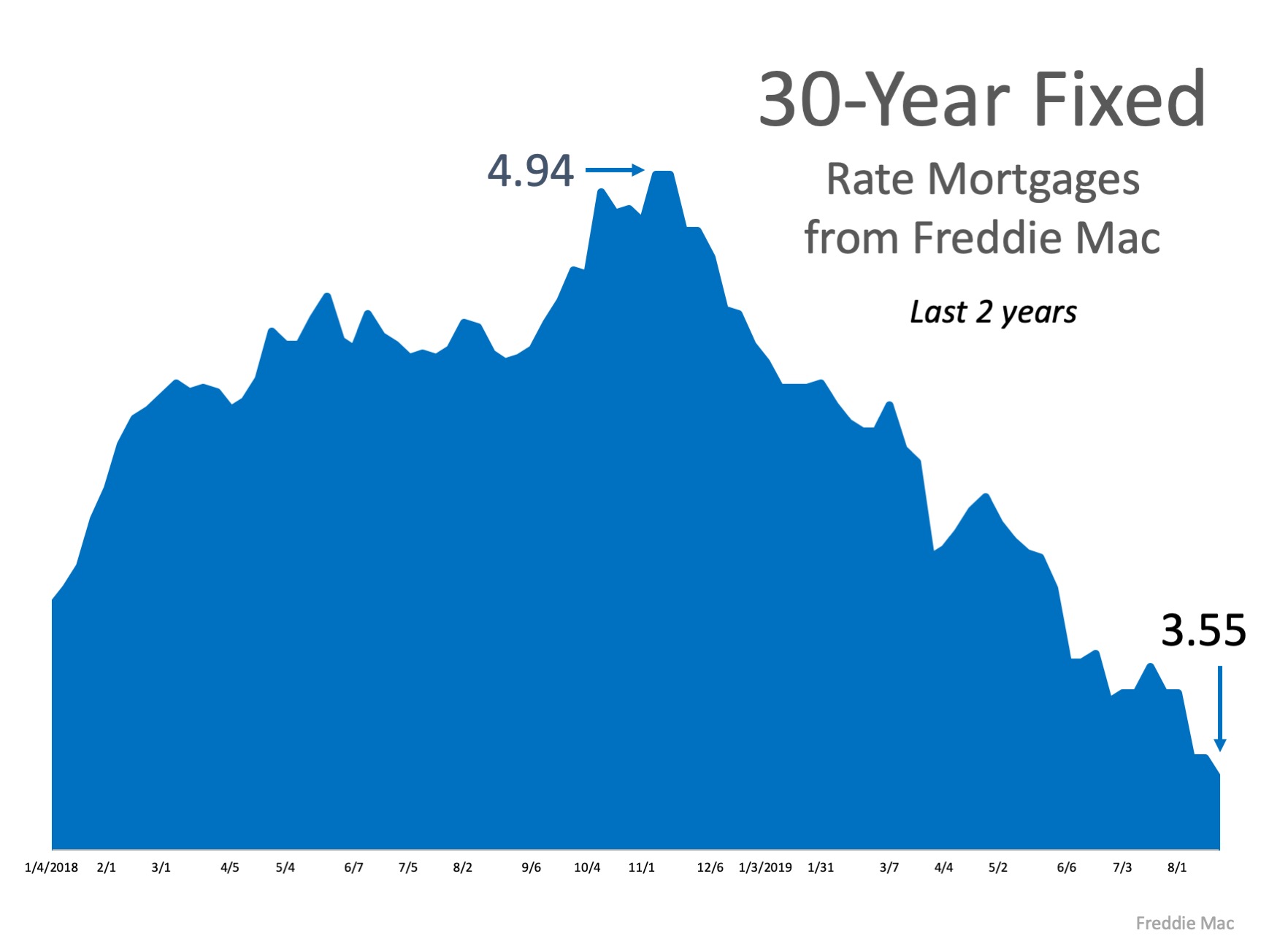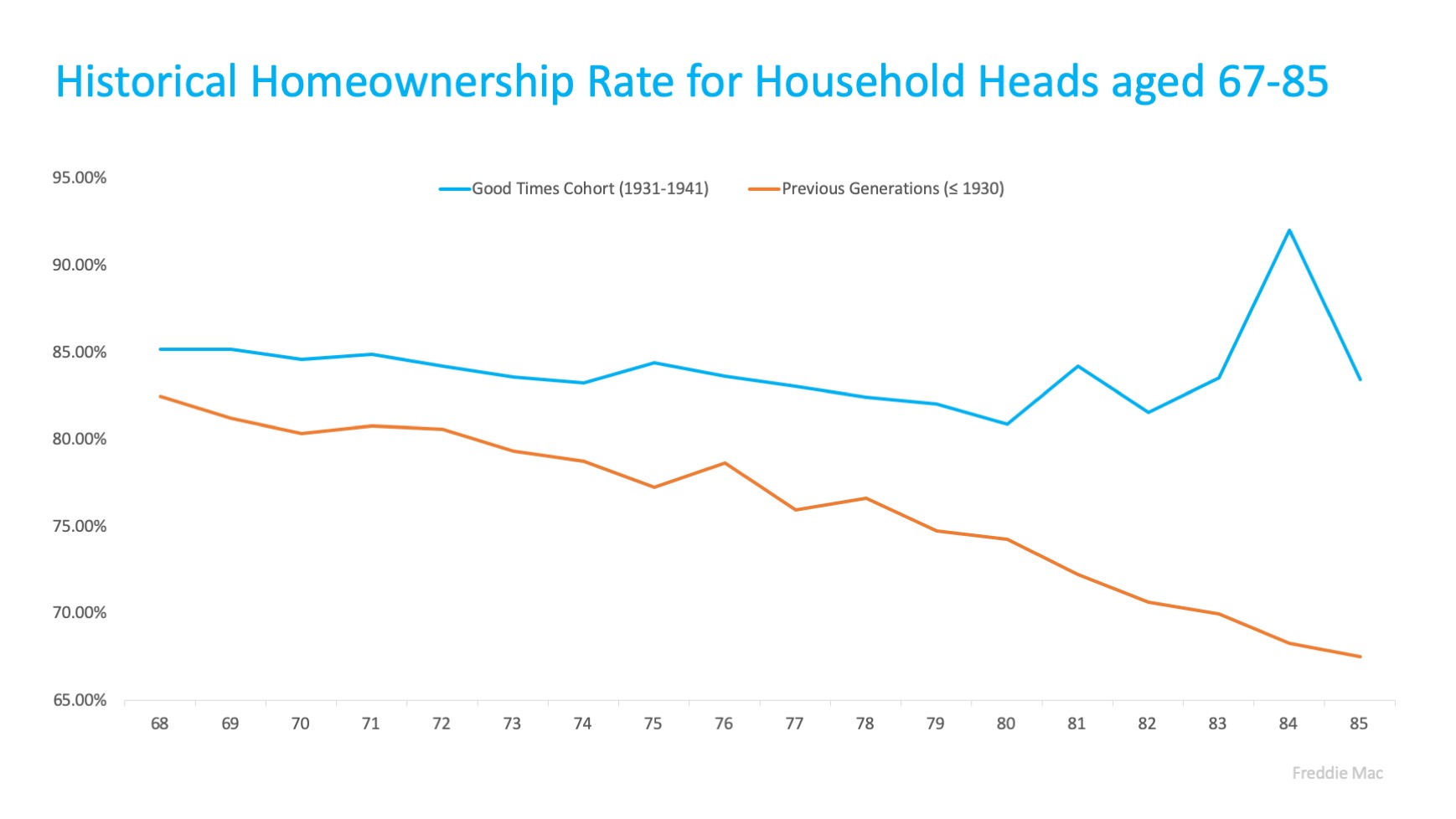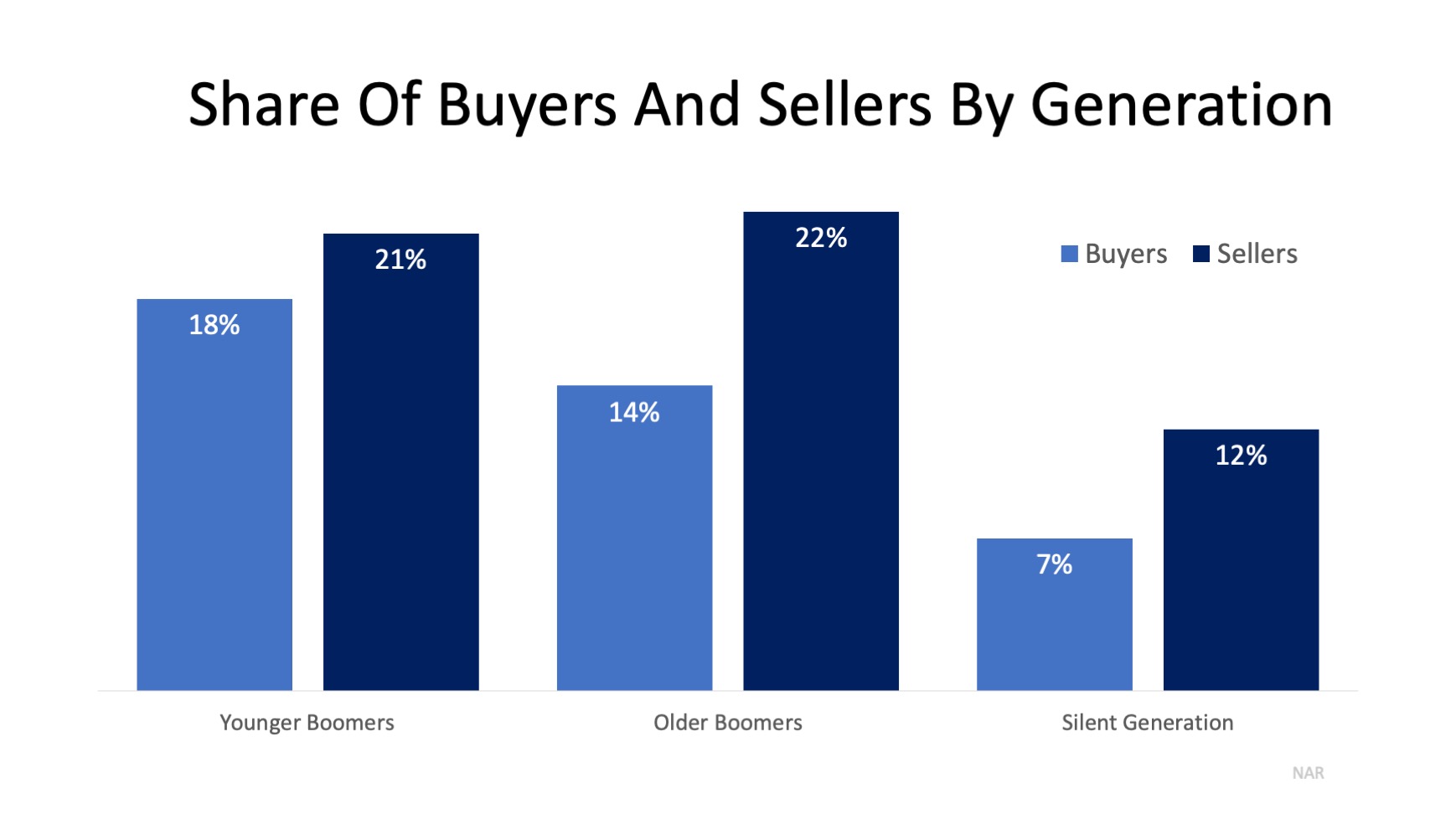Market Trends and Insights for Home Buyers and Homeowners. #equalhousingopportunity
Saturday, August 31, 2019
Friday, August 30, 2019
A Recession Does Not Equal a Housing Crisis
A Recession Does Not Equal a Housing Crisis [INFOGRAPHIC]
![A Recession Does Not Equal a Housing Crisis [INFOGRAPHIC] | MyKCM](https://files.mykcm.com/2019/08/29021439/20190830-MEM-1046x1308.jpg)
Some Highlights:
- There is plenty of talk in the media about a pending economic slowdown.
- The good news is, home values actually increased in 3 of the last 5 U.S. recessions, and decreased by less than 2% in the 4th.
- Many experts predict a potential recession is on the horizon. However, housing will not be the trigger, and home values will still continue to appreciate. It will not be a repeat of the crash in the 2008 housing market.
Thursday, August 29, 2019
iBuyers: What Is the “Cost of Convenience” When Selling Your Home?
iBuyers: What Is the “Cost of Convenience” When Selling Your Home?

When thinking about selling their house, homeowners have many options. A relatively new option is using an “iBuyer.” What is an iBuyer?
According to Jovio, the definition is:
“A company or investor that uses Automated Valuation Models (AVMs) to make instant offers on homes. It allows sellers to close on a property quickly. Once sold, the company then turns around and resells the home for a profit.”
Today, there are many iBuyer companies such as OfferPad, Zillow Offers, Knock, Opendoor, and Perch. Even some more traditional companies offer the same or similar services (ex. Keller Williams, Redfin, Realogy). Ivy Zelman reported in her ‘Z’ Report that some traditional brokers are partnering with some of the larger iBuyers too:
“Keller Williams announced a partnership with Offerpad, aligning the largest franchise-based brokerage brand in the U.S. with the five-year-old iBuyer. The move follows Realogy’s partnership with Home Partners of America last year as an established brokerage player more directly providing an iBuyer alternative…Likewise, in early July, Redfin and Opendoor announced a partnership, starting in Phoenix and Atlanta – aligning interests of the 13-year old, tech-enabled and value-focused brokerage with the largest and longest-standing iBuyer. Outside of these larger scale alliances, Zillow’s strategy has been to work with local brokerages as partners on a market-by-market basis.”
Does it make sense to sell your home to an iBuyer?
It depends. Collateral Analytics recently released a study which revealed the advantages and disadvantages of using an iBuyer. According to the study, if the homeowner is looking for the convenience of a quick sale with less uncertainty, using an iBuyer may make sense.
“iBuyers offer quicker closings for sellers who would like to avoid the uncertainty of knowing when and if their home will sell. For motivated sellers who want a predictable sale date and need to move, perhaps a long distance from the current location, there is no question that iBuyers have provided a welcome alternative to traditional brokerage.”
The study, however, also showed there is a cost for that convenience. Collateral Analytics explained:
“Traditional brokers fees generally range from 5% to 7% of the sales price…In addition to this cost, buyers typically pay some closing costs including lender related charges in the range of 1% to 3%.”
In contrast:
“iBuyers charge sellers a ‘convenience fee’ of 6% to 9.5%, some also charge the seller for fees typically paid by buyers at closing adding another 1% or more. Most iBuyers will inspect the home, assess a generous home repair allowance and negotiate a (an additional) credit to handle such repairs...Overall the total direct costs, ignoring repair credits, will run 7% to 10% for an iBuyer, versus the typical 5% to 9% combined seller and buyer costs with a traditional broker. Yet, that is not the end of the story or comparison.”
The study went on to explain how iBuyers need to charge even more because they have additional expenses beyond that of the traditional broker. They include:
- Carrying costs involving significant amounts of capital – The iBuyer must pay the expenses of the house between the time they purchase it and the time they sell it to a new buyer.
- Safeguarding the home risks – A home with an iBuyer ‘For Sale Sign’ alerts anyone passing that the house is vacant. The study suggests that these homes could become targets for vagrants and criminals.
- Adverse selection risks – The study explains that since iBuyers use computer models to determine their offer, they may be unaware of certain challenges in the neighborhood that could adversely impact the value.
- Potential home price declines – As the survey states:
“A downturn in home prices, not forecast by the iBuyer market analysts could be devastating as they ramp up their business platforms, particularly if the cost of capital increases. At the same time, downturns are precisely when the most sellers would want this option.”
Bottom Line
After taking a thorough look at the iBuyer platform, the study concludes that using an iBuyer is more expensive for the homeowner than the traditional brokerage model, but for some sellers, it may still make sense:
“These preliminary empirical results suggest that sellers are paying not just the difference in fees of 2% to 5% more than with traditional agencies, and a generous repair allowance, but another 3% to 5% or more to compensate the iBuyer for liquidity risks and carrying costs. In all, the typical cost to a seller appears to be in the range of 13% to 15% depending on the iBuyer vendor. For some sellers, needing to move or requiring quick extraction of equity, this is certainly worthwhile, but what percentage of the market will want this service remains to be seen.”
Wednesday, August 28, 2019
Top Priorities When Moving with Kids
Top Priorities When Moving with Kids

According to the Pew Research Center, around 37% of U.S students will be going back to school soon and the rest have already started the new academic year. With school-aged children in your home, buying or selling a house can take on a whole different approach when it comes to finding the right size, location, school district, and more.
Recently, the 2019 Moving with Kids Report from the National Association of Realtors®(NAR) studied “the different purchasing habits as well as seller preferences during the home buying and selling process.” This is what they found:
When Purchasing a Home
The major difference between the homebuyers who have children and those who do not is the importance of the neighborhood. In fact, 53% said the quality of the school district is an important factor when purchasing a home, and 50% select neighborhoods by the convenience to the schools.
Buyers with children also purchase larger, detached single-family homes with 4 bedrooms and 2 full bathrooms at approximately 2,110 square feet.
Furthermore, 26% noted how childcare expenses delayed the home-buying process and forced additional compromises: 31% in the size of the home, 24% in the price, and 18% in the distance from work.
When Selling a Home
Of those polled, 23% of buyers with children sold their home "very urgently," and 46% indicated "somewhat urgently, within a reasonable time frame." Selling with urgency can pressure sellers to accept offers that are not in their favor. Lawrence Yun, Chief Economist at NAR explains,
“When buying or selling a home, exercising patience is beneficial, but in some cases – such as facing an upcoming school year or the outgrowing of a home – sellers find themselves rushed and forced to accept a less than ideal offer.”
For sellers with children, 21% want a real estate professional to help them sell the home within a specific time frame, 20% at a competitive price, and 19% to market their home to potential buyers.
Bottom Line
Buying or selling a home can be driven by different priorities when you are also raising a family. If you’re a seller with children and looking to relocate, let’s get together to navigate the process in the most reasonable time frame for you and your family.
Tuesday, August 27, 2019
What’s the Latest on Interest Rates?
What’s the Latest on Interest Rates?

Mortgage rates have fallen by over a full percentage point since Q4 of 2018, settling at near-historic lows. This is big news for buyers looking to get more for their money in the current housing market. According to Freddie Mac’s Primary Mortgage Market Survey,
According to Freddie Mac’s Primary Mortgage Market Survey,
 According to Freddie Mac’s Primary Mortgage Market Survey,
According to Freddie Mac’s Primary Mortgage Market Survey,“the 30-year fixed-rate mortgage (FRM) rate averaged 3.60 percent, the lowest it has been since November 2016.”
Sam Khater, Chief Economist at Freddie Mac, notes how this is great news for homebuyers. He states,
“…consumer sentiment remains buoyed by a strong labor market and low rates that will continue to drive home sales into the fall.”
As a potential buyer, the best thing you can do is work with a trusted advisor who can help you keep a close eye on how the market is changing. Relying on current expert advice is more important than ever when it comes to making a confident and informed decision for you and your family.
Bottom Line
Even a small increase (or decrease) in interest rates can impact your monthly housing cost. If buying a home is on your short list of goals to achieve, let’s get together to determine your best move.
Monday, August 26, 2019
Experts Predict a Strong Housing Market for the Rest of 2019
Experts Predict a Strong Housing Market for the Rest of 2019

We’re in the back half of the year, and with a decline in interest rates as well as home price and wage appreciation, many are wondering what the predictions are for the remainder of 2019.
Here’s what some of the experts have to say:
“We see the cooldown flattening or even reversing course in the coming months and expect the housing market to continue coming into balance. In the meantime, buyers are likely claiming some ground from what has been seller’s territory over the past few years. If mortgage rates stay low, wages continue to grow, and inventory picks up, we can expect the U.S. housing market to further stabilize throughout the remainder of the year.”
“We expect the second half of year will be notably better than the first half in terms of home sales, mainly because of lower mortgage rates.”
“The drop in mortgage rates continues to stimulate the real estate market and the economy. Home purchase demand is up five percent from a year ago and has noticeably strengthened since the early summer months…The benefit of lower mortgage rates is not only shoring up home sales, but also providing support to homeowner balance sheets via higher monthly cash flow and steadily rising home equity.”
Bottom Line
The housing market will be strong for the rest of 2019. If you’d like to know more about our specific market, let’s get together to discuss what’s happening in our area.
Friday, August 23, 2019
A Latte a Day Keeps Homeownership Away
A Latte a Day Keeps Homeownership Away
![A Latte a Day Keeps Homeownership Away [INFOGRAPHIC] | MyKCM](https://files.mykcm.com/2019/08/22112914/20190823-MEM-1046x1308.jpg)
Some Highlights:
- The pumpkin spice latte is launching soon, so you may be tempted to spend your extra cash on a daily caffeine fix, but that small expense can add up to a big number – fast!
- Saving for a down payment takes a little discipline, so limiting your extra purchases (like a latte a day from your favorite coffee shop) will help you get there faster.
- Depending on where you live, putting away just a small amount each day will get you to the average down payment you may need for homeownership faster than you think.
Thursday, August 22, 2019
5 Easy Steps to Avoid Overwhelm from Media Overload
5 Easy Steps to Avoid Overwhelm from Media Overload

When someone is thinking about buying or selling a home, they want to be well-informed. They want to make the right decision for themselves and their family. They scour the internet for any information they can find about the housing market.
Today, there is an abundance of information available. It is often conflicting news. It can easily lead to confusion and concern, perhaps even causing a potential buyer or seller to cancel their plans to move altogether. Instead, the best things to do are sit down and take a deep breath.
In a recent article, Jeff Davidson, a recognized speaker on the subject of productivity, explained:
“The pace at which new information arrives will accelerate every day…Too often, the reflex to take action only exacerbates your time-pressure problems. Do not bite off more than you can chew, and acknowledge that often, the wisest response to too much competition for your time and attention is to simply slow down to assess the best way to proceed.”
To that point, here is an easy five-step process to follow if all of this information seems overwhelming:
- Calm Down - Don’t let the confusion lead to concern or panic.
- Slow Down - As Davidson suggests, just “slow down to assess.”
- Think - Remember the reasons you wanted to move in the first place. Are they still important?
- Plan - Determine whether or not the new information should change anything. If you need further clarification on some points, reach out to a real estate professional in your area for a better understanding.
- Act - After thorough consideration, feel good about your decision, whether you decide to move or not.
Bottom Line
Don’t let the plethora of seemingly conflicting information on the housing market stop you from moving forward with your life. Let's get together to ensure you get the valuable counsel you need so you can make the right decision for you and your family.
Wednesday, August 21, 2019
Seniors Are on the Move in the Real Estate Market

Did you know August 21st is National Senior Citizens Day? According to the United States Census, we honor senior citizens today because,
"Throughout our history, older people have achieved much for our families, our communities, and our country. That remains true today and gives us ample reason…to reserve a special day in honor of the senior citizens who mean so much to our land.”
To give proper recognition, we’re going to look at some senior-related data in the housing industry.
According to the Population Reference Bureau,
“The number of Americans ages 65 and older is projected to nearly double from 52 million in 2018 to 95 million by 2060, and the 65-and-older age group’s share of the total population will rise from 16 percent to 23 percent.”
Seniors Believe in Homeownership
In a recent report, Freddie Mac compared the homeownership rates of two groups of seniors: the Good Times Cohort (born from 1931-1941) and the Previous Generations(born in the 1930s). The data shows an increase in the homeownership rate for the Good Times Cohort because seniors are now aging in place, living longer, and maintaining a high quality of life into their later years. This, however, does not mean all seniors are staying in place. Some are actively buying and selling homes. In the 2019 Home Buyers and Sellers Generational Trends Report, the National Association of Realtors® (NAR) showed the percentage of seniors buying and selling:
This, however, does not mean all seniors are staying in place. Some are actively buying and selling homes. In the 2019 Home Buyers and Sellers Generational Trends Report, the National Association of Realtors® (NAR) showed the percentage of seniors buying and selling:
 This, however, does not mean all seniors are staying in place. Some are actively buying and selling homes. In the 2019 Home Buyers and Sellers Generational Trends Report, the National Association of Realtors® (NAR) showed the percentage of seniors buying and selling:
This, however, does not mean all seniors are staying in place. Some are actively buying and selling homes. In the 2019 Home Buyers and Sellers Generational Trends Report, the National Association of Realtors® (NAR) showed the percentage of seniors buying and selling:
Here are some highlights from NAR’s report:
- Buyers ages 54 to 63 had higher median household incomes and were more likely to be married couples.
- 12% of buyers ages 54 to 63 are first-time homebuyers, 5% (64 to 72), and 4% (73 to 93).
- Buyers ages 54 to 63 purchased because of an interest in being closer to friends and families, job relocation, and the desire to own a home of their own.
- Sellers 54 years and older often downsized and purchased a smaller, less expensive home than the one they sold.
- Sellers ages 64 to 72 lived in their homes for 21 years or more.
Bottom Line
According to NAR’s report, 58% of buyers ages 64 to 72 said they need help from an agent to find the right home. The transition from a current home to a new one is significant to undertake, especially for anyone who has lived in the same house for many years. If you’re a senior thinking about the process, let’s get together to help you make the move as smoothly as possible.
Subscribe to:
Comments (Atom)